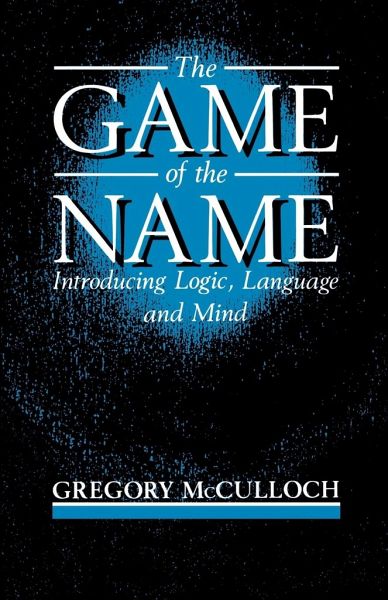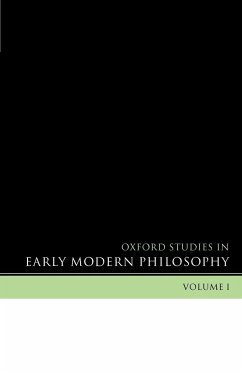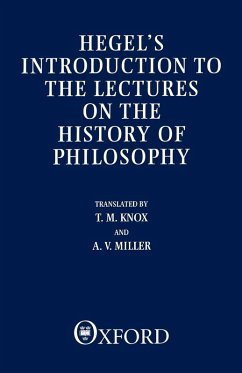
The Game of the Name
Introducing Logic, Language and Mind
Versandkostenfrei!
Versandfertig in 1-2 Wochen
57,99 €
inkl. MwSt.

PAYBACK Punkte
29 °P sammeln!
This book is a good introduction to modern work in an important field of analytic philosophy. The main concerns of analytic philosophy are the investigation of language and the analysis of mind. Work on the former is shaped by the seminal logical theories of Frege, whilst work on the latter is mainly concerned with materialism. It has long been recognized that the two are intimately connected. The recent growth of cognitive science has stimulated new work in the overlapping areas, much of which is unfortunately inaccessible to undergraduates. In this introduction to the subject, the author gives a clear explanation of Frege's basic logical ideas, and explains their application to ordinary language. He then shows how meaning is itself rooted in the philosophy of mind, and the question of intentionality - how the mind represents the world. He concludes with an examination of the different ways in which thought can be 'about' individual material objects.
This book provides an introduction to modern work in the field of analytic philosophy, a field primarily concerned with the investigation of language and the analysis of mind. Using the example of the proper name, McCulloch gives a clear explanation of the seminal logical theories of Gottlob Frege, and explains the application of these ideas to ordinary language, including such topics as Russell on definite descriptions and Kripke on names. He then shows how the key issue of meaning is itself rooted in the philosophy of mind and the question of intentionality--how the mind represents the world. He concludes with an examination of the different ways in which thought can be "about" individual material objects.














